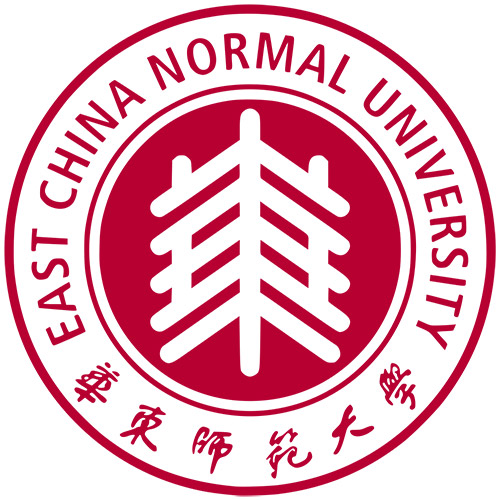Find and retain talent in the Chinese labor market
In a cooperative study with the East China Normal University (ECNU), transformis® was able to identify the reasons for the high dissatisfaction of Western companies with the professional qualifications of Chinese school and university graduates and why talents on the Chinese labor market do not develop their skills to the same extent in Western organizations.
It is not primarily technical skills that young Chinese lack, but rather poorly developed methodological and social skills that make it difficult for young people entering the workforce to apply their knowledge in a targeted and successful manner in business practice. In Western companies in particular, cultural differences often mean that career starters are unable to develop their strengths efficiently.
Young Chinese possess impressive skills that enable them to quickly learn by heart and to memorize work steps. However, due to the overall very theoretical education system in China, many graduates lack practical knowledge, demand-oriented qualification and decision-making power. The ability to think and act actively must therefore be imparted to most junior employees as quickly as possible in the workplace.

Promoting talent in the Chinese labor market
As part of the research cooperation with the ECNU, transformis® has designed a smart program for the combined development of executives and junior staff, which makes it easier for western companies in particular to find the right junior staff, successfully integrate them into the company’s work processes and retain them in the company in the long term:
Recruiting qualified and suitable professionals in China is often a big challenge for Western companies, because recruitment methods from other countries differ significantly from Chinese procedures. We support you in creating a maximum fit between your requirements and the competence and personality profile of the candidates, thus attracting qualified talent on the Chinese labor market for your organization.
Within the framework of the research cooperation with ECNU, transformis® has developed a concept to support managers in validly determining the potential of junior employees and thus developing talent on the Chinese labor market.
It is not uncommon for Chinese graduates to have excellent theoretical knowledge that they fail to develop in practice. Young Chinese lack the methodological skills to transfer their knowledge to operational requirements and the courage to openly admit deficits, actively ask questions or take on project responsibility independently and in a solution-oriented manner.
Make the development of these methodological competencies a management task.
Within the framework of the combined management development and junior staff development program, transformis® analyzes the potential of your junior staff and enables your managers to carry out development planning that is aligned with the requirements of the organization and to evaluate its effect regularly and efficiently.
As part of the research collaboration within the ECNU-S&P Research Center, we have designed a unique development program for leadership of post-graduates in China, which purposefully integrates the latest findings in neuroscience, psychology, and pedagogy and specifically takes into account the socioeconomic structures of the Chinese labor and education system.
The development program is based on the neuroscientific findings on human learning and action of the developers of the Zurich Resource Model “ZRM®”. The effective ZRM® is complemented by action-oriented learning models from business education as well as elements of Sùzhì (素質 / 素质) and Confucianism from classical Chinese education.
In this way, the development program is specifically aimed at addressing the deficits of young professionals in China. These deficits were reported in particular by Western companies in the “Smart Education China” study:
Young professionals in China do not primarily lack technical skills. Rather, there is a lack of social and methodological competencies that enable them to apply theoretical knowledge in the organization in a performant manner. By interlocking neurodidactics, models of action-oriented learning from business education and Sùzhì, these development potentials can be efficiently worked on:
Certified ZRM® coaches enable your first, second and, if necessary, third-level managers, employees and, in particular, young professionals to develop their self-management skills through an individually tailored sequence of systemic analyses and coaching sessions. An essential goal here is to continuously strengthen self-initiative and independence.
The concept includes elements from the German dual vocational training and trains your managers through action-oriented workshops. In the process, your managers learn how to closely interlink theoretical knowledge transfer with the necessary work processes in dealing with concrete organizational challenges.
In this way, young talent development can be efficiently and cost-effectively linked to the processing of concrete and value-adding activities and promotes the transformation of theoretical knowledge to operational practice as well as the holistic view of professional work processes.
We enable your managers to develop the potential of the corresponding employees in a targeted manner and thus contribute sustainably to the development of the available human resources as well as organizational units.
Sùzhì describes a holistic approach to education that is derived from Confucianist educational theory and is very different from Yìngshì jiàoyù (應試教育 / 应试教育), an education or upbringing that is purely focused on exams.
Elements of Sùzhì are used in the development program to open both your managers and the young professionals concerned to interactive workshop methods and to train social skills for everyday work. In this way, participants develop knowledge, will and skill from their independent perception of the world in practical, joint action – with head, heart and hand – thus strengthening professional working relationships with each other. The many years of experience of our coaches on site make it possible to take into account the cultural similarities and differences between Western organizational culture and the Chinese view of work when working on the strengths and deficits identified and to help managers and the corresponding employees to develop their potential and contribute to a measurable increase in performance.
With our concept you increase the efficiency of classic employee management and thus the effectiveness of the managed employees, which can lead to a measurable increase in the profitability of your subsidiary in China.
In addition, the implementation of our effective leadership and junior staff development program contributes to the improvement of the relationship between the two parties involved and thus to the long-term retention of high potentials and talents on the Chinese labor market.
We would be happy to introduce you to our concept for the development of executives and high potentials working for Western companies in China. Please do not hesitate to contact us.
Get in touch with us!
We will be happy to introduce our onboarding concept,
which was specially developed for Chinese young professionals.
 Frédéric SedlákSenior Consultant | HR Management
Frédéric SedlákSenior Consultant | HR ManagementWe are always at your service+49 4102 69 93 22
Ask for free informationf.sedlak@transformis-consulting.de




